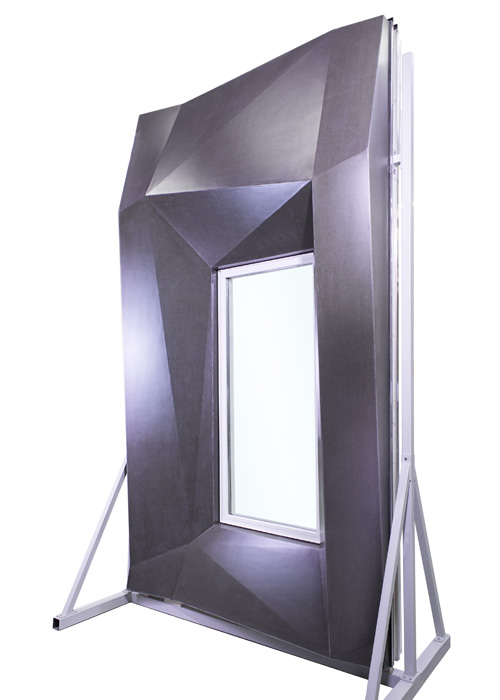Submitted by WA Contents
JEC Innovation Award 2015 for BioBuild
United Kingdom Architecture News - Feb 11, 2015 - 13:19 3994 views

biobuild facade systems in bio composites;image courtesy of lichtzeit.com
“BioBuild Façade System in Biocomposites” has won this year’s JEC Innovation Award Europe in the category “construction”. The award ceremony will take place on 10 March in Paris.
Designed by Arup and GXN Innovation as part of the BioBuild project, it is the world’s first self-supporting façade panel for building construction made of biocomposites that reduces the embodied energy in façade systems by up to 50 percent compared to conventional construction materials with no increase in cost.
Future building materials are grown
The BioBuild project aims to shape a better built environment by developing and using innovative materials based on natural rapidly renewable resources. Biocomposites are composed of natural fibers such as flax, hemp and jute, and natural resins made from the byproduct of agricultural processing of corn, sugar cane and other crops. With the appropriate processing, they can be converted into lightweight, durable and high performing products that improve the sustainability of building systems. Apart from the award winning façade system, building kits for rainscreen systems, internal partition walls and suspended ceilings have been designed and tested within the BioBuild consortium funded by the European Community’s Seventh Framework Programme.
A Prefabricated, High-Performance Façade System
Developed primarily for commercial office buildings, the façade panel is 4.0 meters high and 2.3 meters wide and comprises a glazing unit. It is composed of two biocomposite outer shells, made of flax fabric and bio derived resin, with a central layer of insulation material. The panel is delivered to site as a fully prefabricated unit. The facetted geometry follows a parametric approach to optimize the energy efficiency of the building. The overhanging top part of the panel can vary depending on its location and orientation. It provides shading and therefore reduces cooling loads. Because of the low thermal conductivity of the biocomposite materials, the integral shading devices allow for excellent overall thermal performance. The BioBuild team specifically developed the façade system to meet the stringent thermal, structural and fire performance requirements of building codes in Denmark, Germany, United Kingdom and Spain. Central for the design has been a life cycle design approach. All parts of the system can be easily detached from each other and either be recycled or reused at the end of the life cycle.
"This innovative product pushes the boundaries of both façade and materials engineering towards new targets by using biocomposites in an extremely demanding sector of construction. The design freedom of biocomposites can generate a strong impact on the appearance of buildings."
— Guglielmo Carra, BioBuild Design Manager, Arup Berlin
After leading the development of SolarLeaf, the world’s first bioreactive façade for the BIQ House, Arup Germany’s Research Team headed by Dr. Jan Wurm is now engaged in the design of another façade system that links natural and technical processes for improving our built environment.

flax bio composite;image courtesy of GXN2

interior view biobuild facade systems;image courtesy of lichtzeit.com

woven flax fabric;image courtesy of GXN2
The JEC Innovation Awards
The JEC Company is a non-profit association that is dedicated to the promotion of composites. Once a year they honor the most innovative composite solutions worldwide with the JEC Innovation Awards.
"Realizing these designs show a way for change towards the use of regenerative materials, where natural materials can replace conventional construction materials such as aluminium, steel, brick and concrete. BioBuild proves that biocomposites can create viable products for the building industry. I am very happy to see this collaborative effort between engineers, architects, materials specialists and manufacturers come through, it shows the strength of cross disciplinary innovation."
— Kasper Guldager Jensen, Director of GXN
> via Arup
